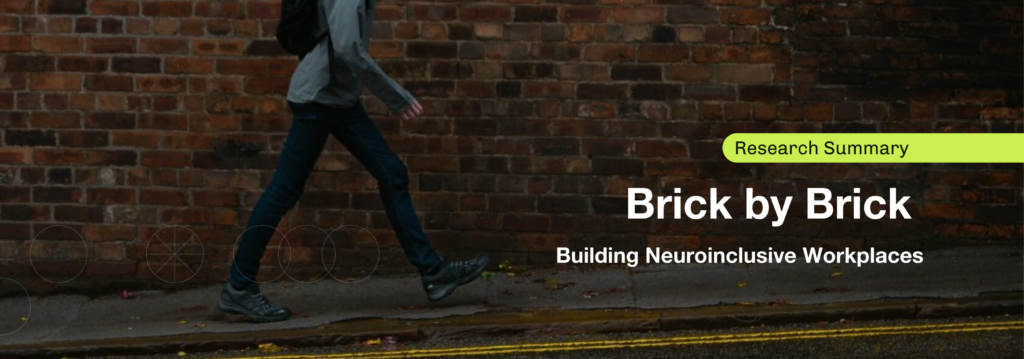Breaking down barriers: Improving the workplace experience for neurodivergent Canadians
In this research, we analyze the findings of 40 interviews with neurodivergent workers and employers of neurodivergent workers to better understand the experiences of neurodivergent individuals in the workplace and how employers can better support them.
What are the most significant barriers that neurodivergent workers face in the workplace? How can employers reduce these barriers and create workplaces where neurodivergent workers thrive? What benefits have organizations that have implemented neurodiversity inclusion initiatives seen?
Read the impact paper to get our full analysis.

Key findings
Neurodivergent workers face many barriers to employment and career progression. Chief among these barriers is a lack of awareness and understanding about neurodiversity, as well as associated stigma and bias. The majority of neurodivergent workers and employers in our interviews mentioned a lack of awareness as the most frequent workplace challenge that neurodivergent employees face.
Other common barriers include facing difficulties obtaining required accommodations, receiving unclear or ambiguous communication from managers and co-workers, having to mask behaviours to meet social norms, and feeling uncomfortable disclosing or unable to disclose their neurodiversity status.
To help reduce these barriers and create workplaces where neurodivergent workers thrive, employers can implement companywide awareness training on neurodiversity, alternative hiring processes, improved accommodation processes, a people-first management style, and a sense of community for neurodivergent workers.

